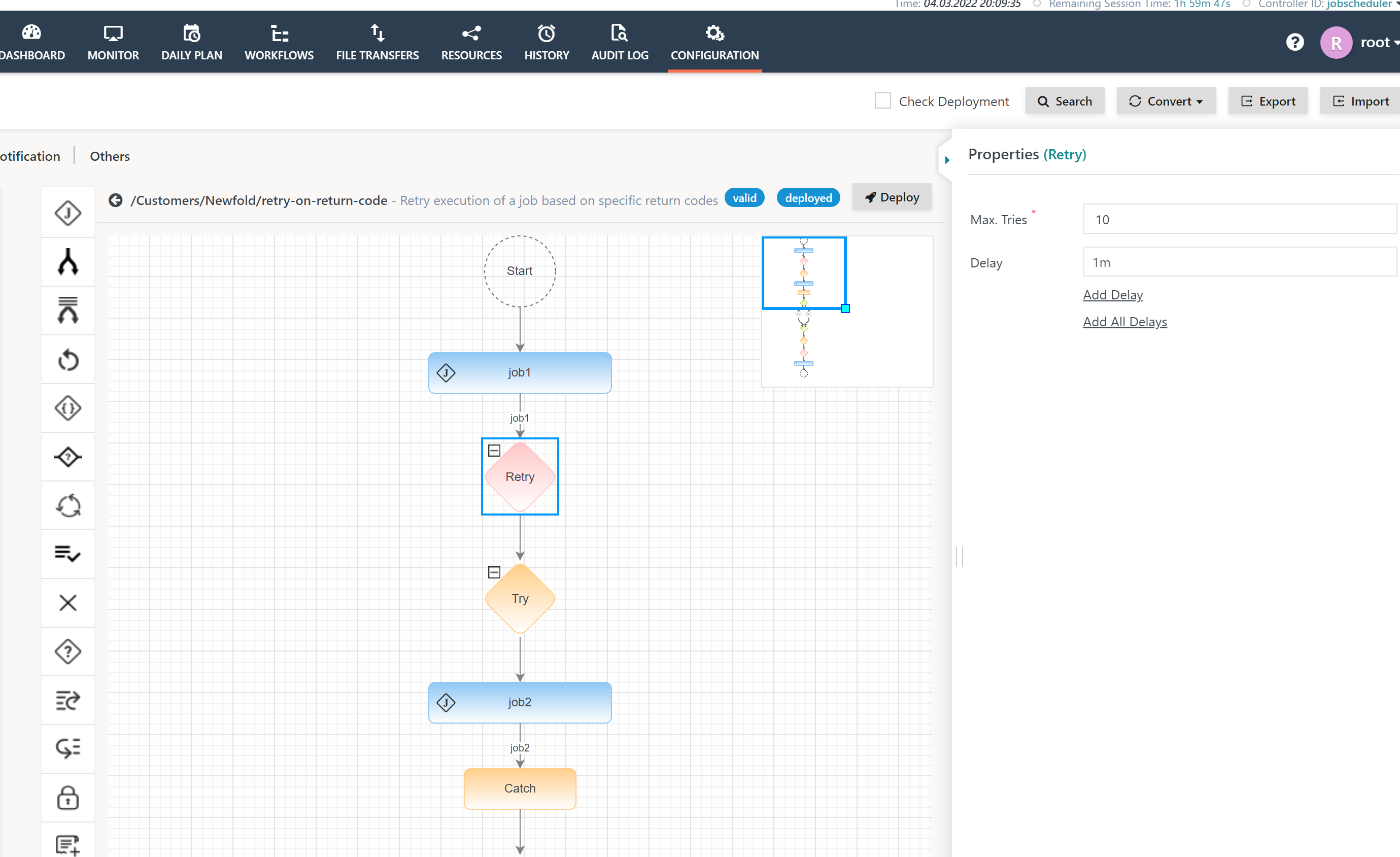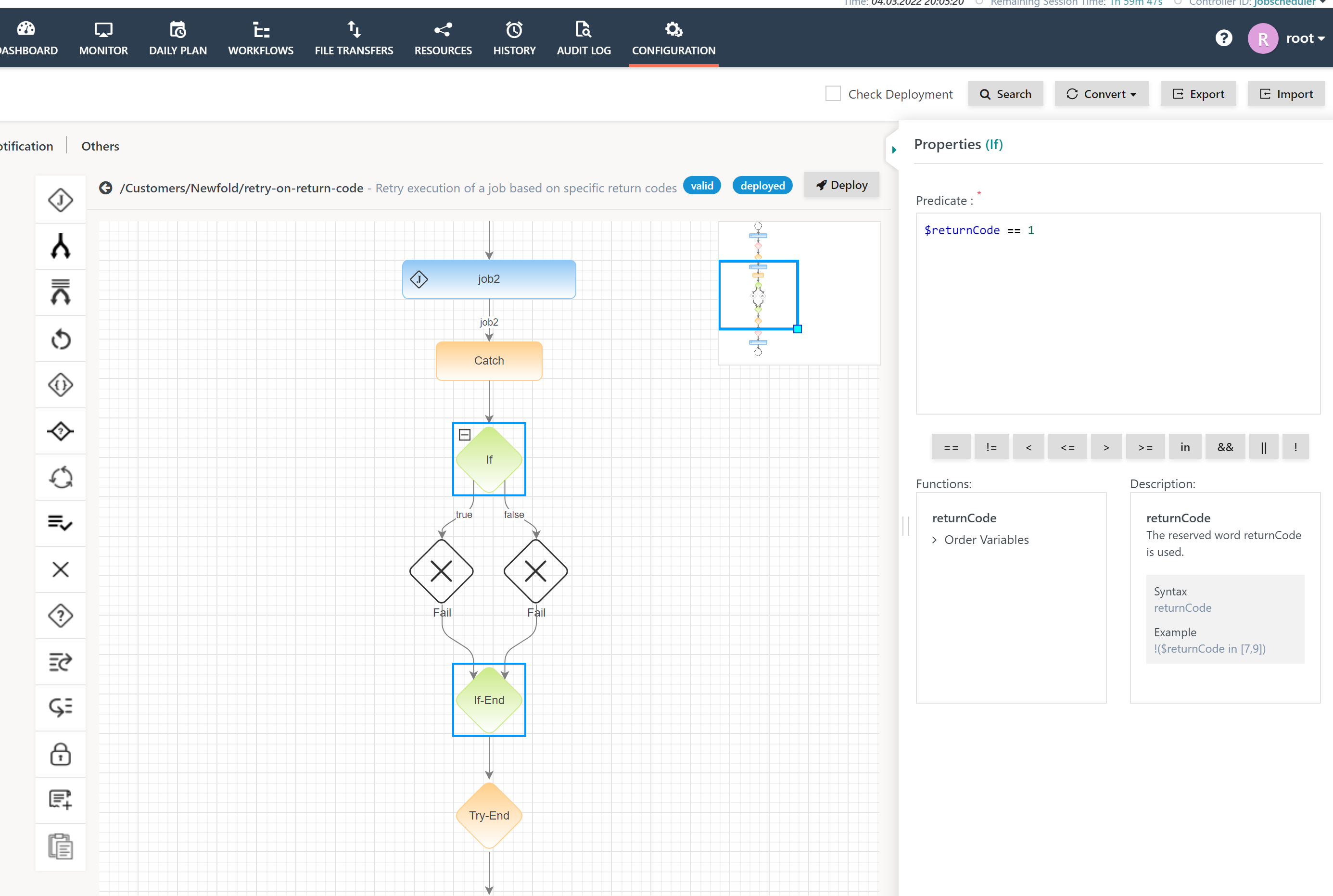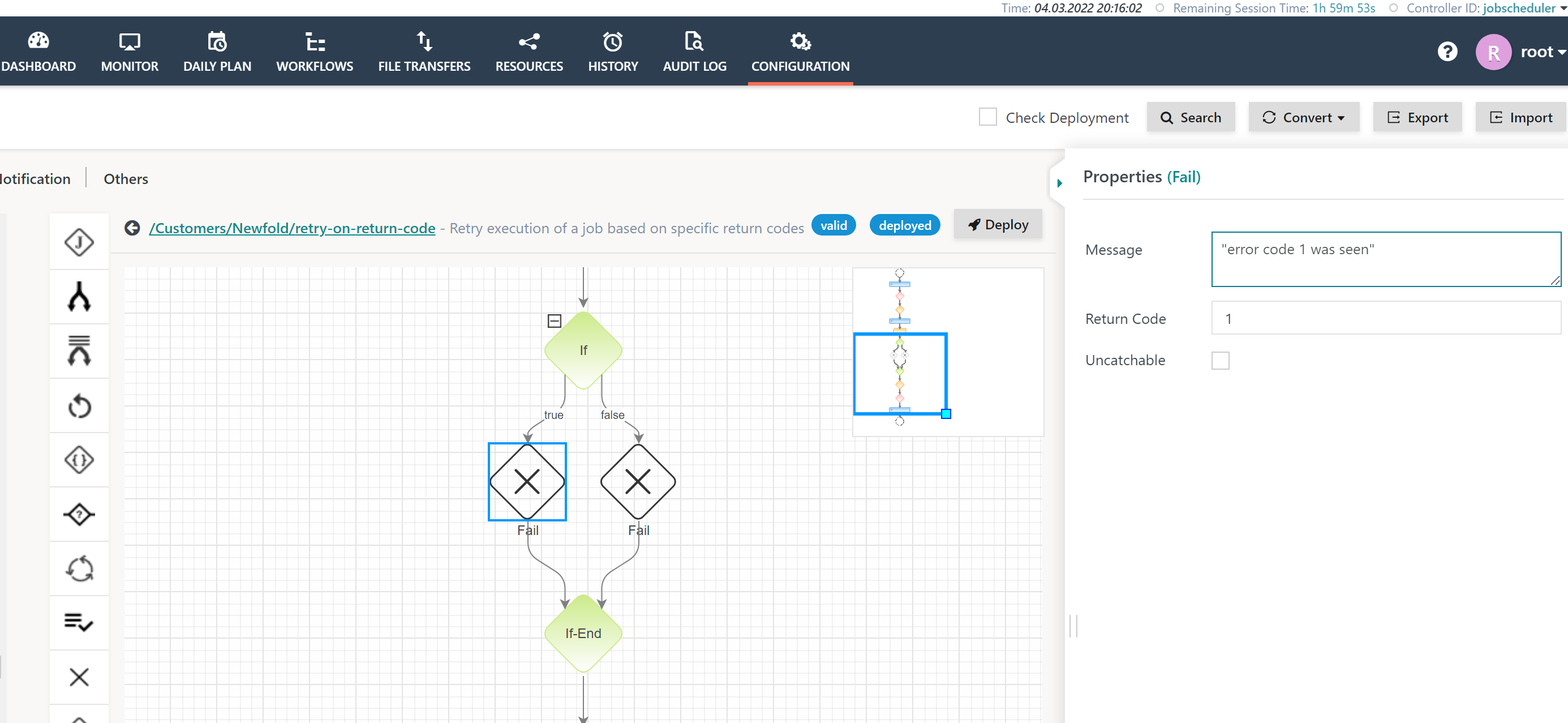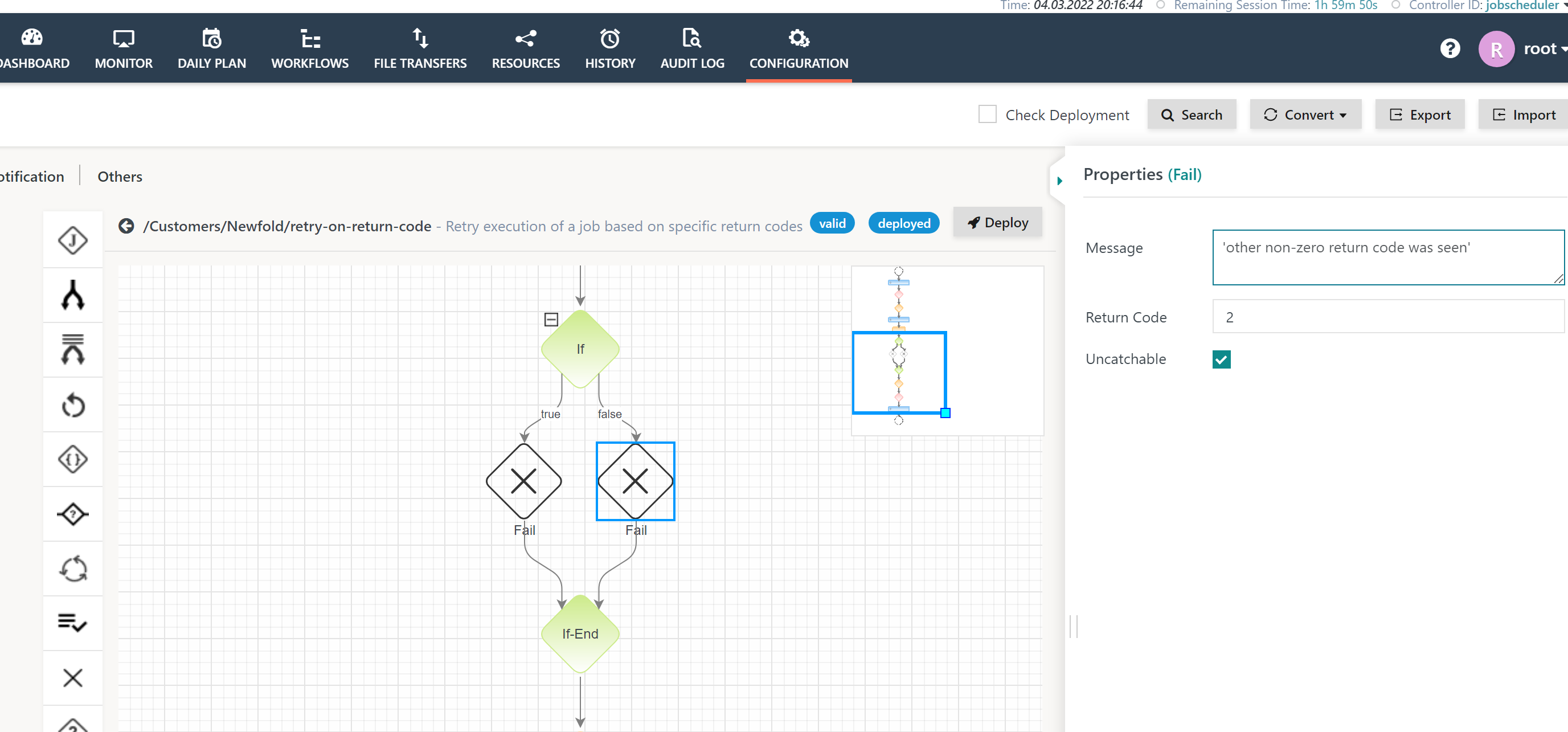Introduction
Consider the following scenario:
- A number of jobs are executed in sequence.
- If one or more jobs fail with return code 1 then the jobs should be repeated a number of times. For any other non-zero return codes the order should be put to a failed state and should wait for user intervention - for example, to resume or to cancel the failed order.
- A related scenario is available in the JS7 - How to retry a job in case of specific exit codes article.
Solution
The workflow presented below implements the use case using the following instructions:
Download (.json upload): retry-on-return-code.workflow.json
Retry Block
A Retry Block includes any number of jobs or instructions. If one of them fails then processing will be repeated from the beginning of the block.
Explanation:
- This workflow implements:
- an outer Retry Block to repeat execution,
- an inner Try / Catch Block to handle return codes of the job and
- an If Instruction to decide about the handling of specific return codes.
Try Block
The Try Block inside a Try / Catch Instruction includes any number of jobs or instructions. If one of them fails then processing will be continued with the Catch Block.
Explanation:
- After a first job
job1,job2should be restarted for a number of times if it fails with return code 1. - The JS7 - Retry Instruction manages the retry capability and the intervals.
- The properties of the Retry Instruction include either specifying a common delay for any retries or using individual delays for each retry.
- The JS7 - Try-Catch Instruction
- executes any number of instructions and jobs within the Try Block:
- If the jobs complete successfully then processing will continue after the Catch Block.
- If jobs fail then the instructions and jobs inside the Catch Block will be executed.
- executes any number of instructions and jobs within the Try Block:
Catch Block
The Catch Block is executed in the event of failed instructions or jobs in a Try Block.
The solution makes use of an JS7 - If Instruction to apply different types of error handling depending on the return code reported by the failed job.
If Instruction
Explanation:
- Within the Catch Block the JS7 - If Instruction is used to check the return code value. This value is available with the built-in
$returnCodevariable. - The If Instruction evaluates the return code by use of the
$returnCode == 1predicate. For details about predicates, see JS7 - Expressions for Variables. - The evaluation result gives two options:
- if the return code value is 1 then the left branch (true) of the If Instruction is used,
- for any other return code values the right branch (false) is used.
- Subsequently we find two occurrences of a JS7 - Fail Instruction.
Fail Instruction
Left Fail Instruction
Explanation:
- The left Fail Instruction fails the order with a return code value 1.
- In addition, a message is added which is shown in the JOC Cockpit GUI for the failed order.
- As a consequence the failed order is immediately picked up by the outer Retry Instruction that will repeat execution of
job1having applied the indicated delay.
Right Fail Instruction
Explanation:
- The right Fail Instruction fails the order with a return code value 2.
- In addition, a message is added that becomes visible with the JOC Cockpit GUI for the failed order.
- The
uncatchablecheckbox is used to indicate that the failed order cannot be picked by the outer Retry Instruction. Instead, the order will remain with its current position in a failed state and wait for user intervention.
Implications
In this scenario the job is configured to consider any non-zero return code as signaling failure. This requires use of a Try / Catch Instruction to handle errors.
This implies that:
- the JS7 - Task History classifies the job as having failed,
- a notification will be created for each failed execution which is visible from the JS7 - Monitor view and which can be forwarded by a JS7 - Notification.
These implications might reflect what some users need. For an alternative solution that does not fail the offending job and that does not create notifications see the JS7 - How to retry a job in case of specific exit codes article.




